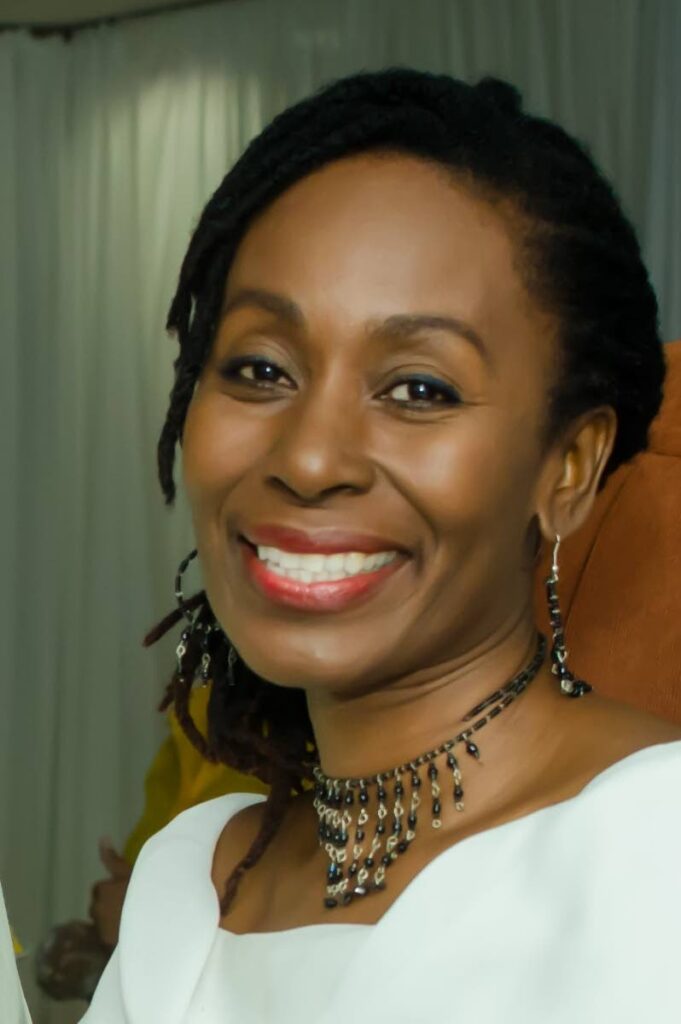A mirror called calypso

Culture Matters
Carnival Love
DARA E HEALY
In this land of rhyme and rhythm, bongo drum and tassa did meet
Now racist slurs and cynicism walking naked on the street
And from Laventille to Penal each man sticks to his tribe
Why can't the drum and dhantal vibrate with just one vibe?
Om Shanti Om, down on my knees I kneeling
Om Shanti Om, please hear my song of healing
– Singing Sandra, Song for Healing
AS DANCERS dressed in East Indian and African clothing wrapped her with the TT flag, Singing Sandra punched her fist in the air and echoed Martin Luther King’s “I have a Dream.” She proclaimed her dream that Africans and Indians would walk together in harmony and that her nation would be rid of the epidemic of racial hostility.
It was 1999 and Singing Sandra was about to become Calypso Monarch with her powerful Song for Healing and Voices from the Ghetto. As they walked off stage holding the massive flag with Sandra in the middle, the dancers looked at each other and smiled. They knew; she was going to win this thing.
In times of crisis the role of the artist is clear. Creative voices help the nation to look deep into a mirror, to look even beyond the pain and ancient struggles. Through calypso, mas, pan and our many festivals, we may see a path to healing and hope. We also look to creative forces to help us discover love. Not love in the fleeting, romantic sense. Rather, an emotion driven by pride, commitment and a determination to make each generation better.
Over the coming weeks, we will explore some of the ways in which creative forces have crafted this notion of love for our country through the vehicle of Carnival. First, calypso.
Annually, Carnival reminds us that we are still a work in progress. For practitioners – whether calypsonian, stickfighter or those who live for the ritual of Jouvay – it is disappointing that we still debate if Carnival is necessary. How is this possible in the only country that fought for the right to express its freedom through Carnival? Is it that the voices against the people’s culture are now louder than those of the people themselves?
In 1962, Lord Bryner, Independence Calypso Monarch, declared, “This is your land just as well as my land/This is your place and also it’s my place/So leh we put our heads together and live like one family...” In the immediate post-independence years, Mighty Sniper acknowledged the power of our culture. “Our steelbands/Is the best talent in this world/By calypso our stories are told/With this rhythm to touch your soul...” For a time, it seemed that we understood our mission.
But as we know, the mood in the country changed. Calls for unity became intertwined with Black Power and mobilisation of the economically disadvantaged against the government. By the 1980s, we openly questioned whether we had strayed from the path outlined in the 1960s.
With high levels of crime, inequality and cost of living, the calypso shifted its focus again. Relator offered a solution, to “get a kitchen garden an’ plant yuh own food/...government mus’ control prices in Trinidad/Subsidise farmers and increase salaries...” Meanwhile, Black Stalin mocked the idea that “better days” were coming, expressing his own frustration with lack of action.
By the following decade, after an attempted coup and continued challenges in communities, Sandra was bawling in song, even as she hoped for better. Later, as we reflected on our 50th anniversary of independence from colonial rule, a younger core of singers infused their own positive voice into the space. Rembunction reminded us of the primordial energy behind Carnival. “We are mas, pan and calypso/Birthed from her womb/…I see hope for the future/We must take it further/So much here to treasure/Gifted beyond measure.”
In 2022, as we approach 60 years of independence, what calypsoes will we sing? Has the pandemic imposed an even greater divide between those who value our national festival and those who fear it? Or will we now seize the opportunity to educate and bring the healing that Resistance, Sniper, Rudder and the others called for?
Whatever we decide, the Carnival is happening. The spirits of the stickmen and women are gathering, preparing for battle. But at the heart of their lavways is perhaps an even more powerful sentiment than hope, or the desire for justice. At the core of the chants they will sing is the healing power of our culture – motivated, always, by love.
Dara E Healy is a performance artist and founder of the Indigenous Creative Arts Network – ICAN


Comments
"A mirror called calypso"